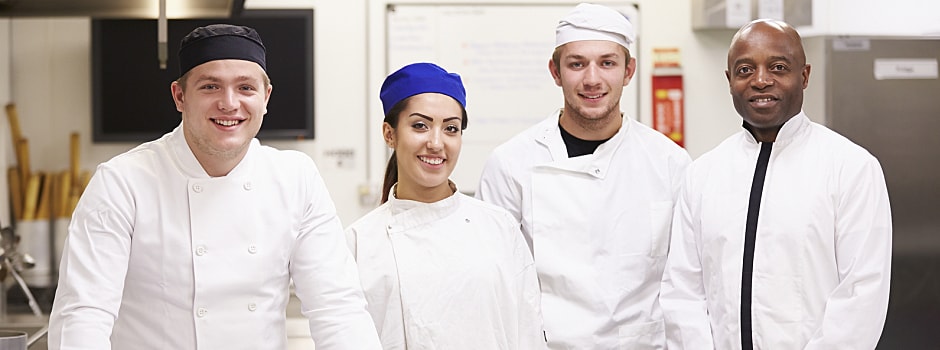Becoming a chef is not a decision to make on a whim. The food you make at home every night could be amazing, or "marketable," as your friends may tell you, but that's only the first step. In order to be a successful chef, you'll have to bring your collective experience to an exponentially higher level. If you're ready to move from being a cook to a chef, here are some helpful tips to follow.
Sample the Life
If you're interested in becoming a chef, the first step you should take is to observe and get a feel for what the chef life is all about. Staging or interning in a professional kitchen is a great first step. Ideally, you should get this experience at an establishment that is similar to where you envision yourself working. If you become an expert, chances are that eventually you'll land the position. Work as much as you possibly can and watch for several things: kitchen workflow, the dynamic of the employees working there, and the interaction between all staff members. This can help get you ready for what long days in the kitchen will feel like.
When you're on the line, pay attention to cooking methods, recipes, and procedures because being in a kitchen is a world away from making a perfect dinner for eight at home. Watch what the chef does and doesn't do. Often, chefs are not cooking the day away because there is a lot of other work to be done. Scheduling, ordering, crunching food-cost numbers, tracking inventory, and paying vendors are a few examples of other tasks they need to do. Log as many hours as you can in one establishment, then move on to another. This is an investment in your future success—whether you eventually become a chef or realize the field isn't for you.
Consider Culinary School
Some chefs swear by the knowledge, techniques, and discipline gained in culinary school. On the other hand, some worked their way up the ladder at a restaurant, learned by doing, and became successful without having to invest tens of thousands of dollars into a foundational education. While it's possible to pick up textbooks from culinary schools and pay a small amount to take online culinary courses, there are many benefits to learning from a professional who has years of experience. Great instructors teach their students insights that are only learned through mistakes.
If you decide to take culinary classes or go to culinary school full-time, consider staging or working in a kitchen while doing so to build your level of efficiency on the line. Many culinary schools are stocked with top-of-the-line equipment, while most professional kitchens are not. Culinary school graduates often experience culture shock if they don't get enough experience in kitchens along the way.
Train on the Job
Professional kitchens are not a place to slack off. One of the biggest reasons for kitchen turnover is work ethic. Working as a chef is hot, dangerous, and stressful, and it requires you to work odd hours. Unfortunately, family life can suffer, holidays and birthdays may be missed, and an eight-hour day is considered a good day by most chefs. This is why working hard from the start is only going to help.
The first step is to work in the dish pit, where conditions are hot, wet, and never seem to end. This rite of passage separates those who are up for the work of a chef and those who would rather work a desk job. Always keep your eyes and ears open, and notice everything along the way. Jump at the chance to help others early and often, and train with as many aspects of the business as possible. Working every position in a restaurant gives chefs and eventual restaurateurs a much better chance at success because managing the business as a whole becomes much easier when you know what goes into every position.
To be a great chef, you have to go beyond making delicious food. You need to be creative, level-headed, organized, clean, able to take criticism well, and able to learn from mistakes. Becoming a chef is a commitment to a lifestyle, and not just a job, so sampling that life before investing in culinary school is a good idea. If you're still in, develop a good work ethic and a mindset that allows you to learn from every success and every mistake, making you an efficient, knowledgeable chef.



